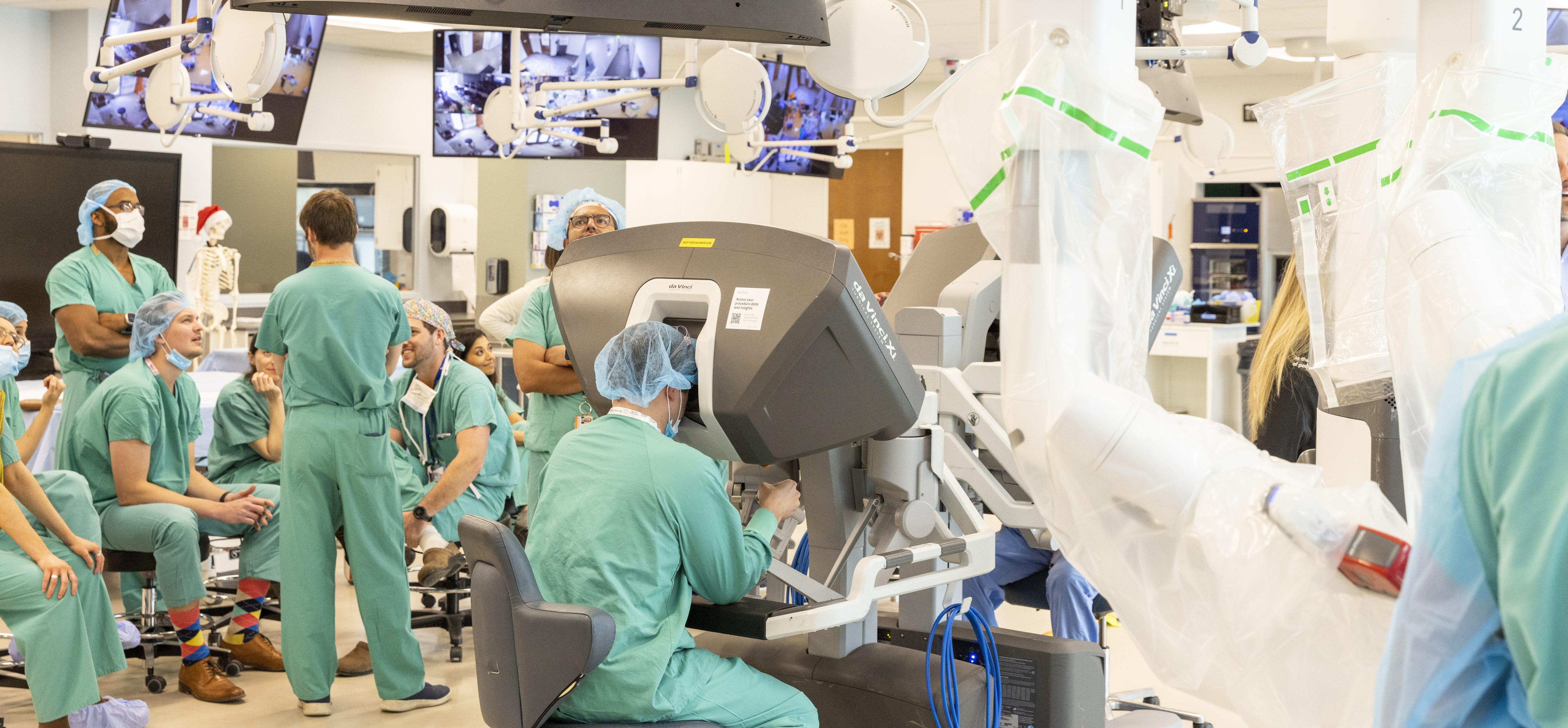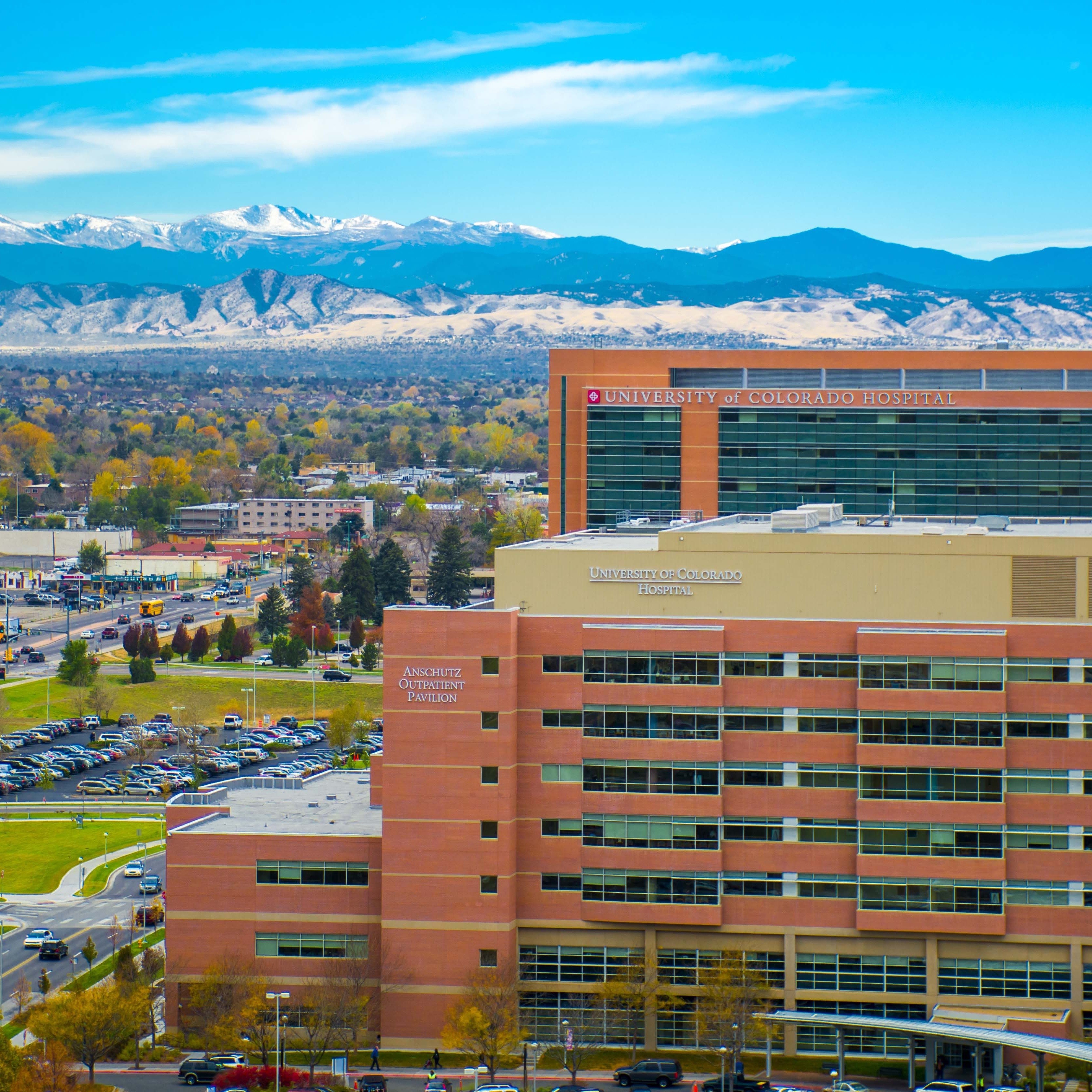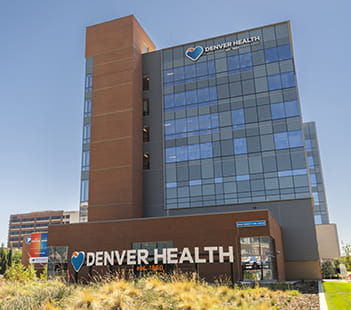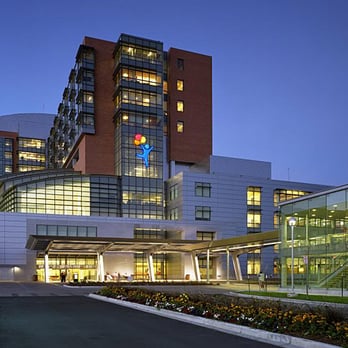
Challenge
As a CU Urology Resident, you will join a team of top experts in the field, researchers pushing the boundaries of science, and a diverse body of patients that reflects the place in which we live. You will work hard, in a comfortable and supported setting, and acquire the ability to confront literally any challenge in the surgical and clinical domains of Urology, preparing you for any future that you may wish.
Read below to learn about the academic content of our program, including the program timeline, mentorship philosophy, and skills/trainings you'll gain over the course of your five years as a CU Urology resident.
Education
There are plenty of things that can be learned in any surgical residency program, but those topics aren't what make a medical student choose where they'll spend their next five years.
Programs are set apart by their patients, their opportunities, and their locations.
Our patients come from a seven-state area, from rural and urban areas alike. Anschutz's world-class facilities bring some of the most fascinating and challenging cases to our doorstep—and at the same time, accessible clinics make students experts in staple urological conditions and procedures. Anschutz is able to provide comprehensive training thanks to a diverse patient population that reflects the country in which we live.
Every major urological subspecialty is represented here at CU, alongside emerging subspecialties like transitional care and urogynecology. Associate Program Director Dr. Dan Wood is a pioneering expert in transition of care for pediatric patients transferring into adult care teams, ensuring continuity of top-notch care. We have an established robotics program across several of our training sites, equipped with the latest in Da Vinci technology. Whether you're interested in pediatric urology, urogynecology, men's health, or endourology, CU is prepared to teach you everything you need to know.
And as for our location, CU Urology is uniquely positioned on Anschutz Medical Campus, home to three distinct hospitals at which residents complete clinical rotations—plus a fourth relationship with Denver Health Hospital in the city. Check out the section below for more information on each site.
Training Sites

University of Colorado Anschutz Medical Center
Formed as a partnership between the University of Colorado and UCHealth, Anschutz Medical Center includes two inpatient towers, outpatient clinics, and CU Cancer Center. Anschutz sees 2.1 million patients every year, with a level of diversity that reflects both its Aurora location and of the United States at large.
Children's Hospital Colorado
As the largest children's hospital in our seven-state region, Children's Hospital Colorado is a nonprofit hospital centered on personalized care that goes beyond physical health. Our own Dr. Dan Wood practices out of Children's Hospital through our innovative Transitional Urology Program to extend care beyond adult vs. pediatric providers.

Rocky Mountain Regional VA Medical Center
The Eastern Colorado division of U.S. Veterans Affairs runs the RMR VA Medical Center, the center for Veteran care and the care of their families. The VA Medical Center not only provides medical care, but also a hub for community amongst those who have served in our military.

Denver Health Medical Center
Formerly known as Denver General Hospital, Denver Health is a community-centered campus aimed at meeting the needs of the Aurora and Denver area. It not only offers typical hospital services, but also social supports like healthcare access, transitional housing, economic opportunities, and more.
955ff4e7302864d9a5bfff0a001ce385.jpg?sfvrsn=5a7790bb_0)
Mentorship and Coaching
In partnership with our comprehensive clinical and surgical training, we are keen to work on our residents' well-being and future aspirations through both mentorship and coaching.
Mentorship
Mentorship is a core element of every residency experience. Our two program directors, Dr. Granville Lloyd and Dr. Dan Wood, are dedicated not only to medical-clinical knowledge, but whole-person education.
Over your time as a CU Urology resident, you will have face time with Drs. Lloyd and Wood, who have a combined 40+ years of international experience.
Program Director Dr. Lloyd takes "a purely supportive and individualized approach to mentorship, and works hard to avoid overlying [his] own opinions or visions on any resident or student." In his eyes, the role of medical education is to "put each and every learner on the most fertile and productive field of opportunity possible, to show them the geography and architecture of the land, and then to support their passions in education and life as much as possible."
Ultimately, he believes that all medical education is self-taught; the program's job is to position the curious learner as well as possible to leap forward and seize their own destination.
Mentorship is at the core of every resident's experience. Your mentors will be the people who hear about your first publication, celebrate your dream job, and who you meet up with in 10, 15, or 20 years at a conference and pick up as if no time at all has passed.
Coaching
Coaching differs significantly from mentorship: while mentorship is essentially advice from a senior member with deep knowledge and experience in a specific field, coaching is the use of techniques to help an individual identify their own important opportunities that will allow them develop skills, grow strengths and overcome adversity.
Mentorship and coaching are entirely separate but synergistic elements, and at CU DOU we are proud to have not only a formal mentorship program, but also a separate and internal program which gives all residents a coaching opportunity with an on-site, fully certified physician coach.
This experience, while non-mandatory, is offered over the first two years of training with the highest intensity but continues, as needed and desired, throughout the entirety of the residency program. We strongly believe that this offers a unique opportunity to enhance life-long skills that will help as one navigates life and medical practice: from internship and the busy PGY-2 year, through the increasing responsibilities of senior residency and, ultimately, to assist in making the best choices for fellowship, jobs, and to be well prepared for life after training.
Program Timeline
URO-1 Year (PGY-1)
During the URO-1 year, urology interns will participate in six months of core and sub-specialty surgical rotations including general surgery, critical care, plastics, and trauma. These six months are designed to foster competence in basic surgical skills, the peri-operative care of surgical patients, and interdisciplinary patient care coordination. The remaining six months of the URO-1 year will be spent on urology rotations.
URO-2 to URO-5 Years (PGY-2 to PGY-5)
Clinical Rotations
Training for the URO-2 through URO-5 urology residents is dedicated to surgical, clinical and didactic urology. Residents are encouraged to progress with appropriate supervision, gaining graded authority and responsibility based on specific criteria that is guided by the urology milestones.
Research Rotation
Each resident will participate in four months of a research rotation. The research rotation is structured to provide the urology resident with the tools and resources to learn investigative urology. At the end of the rotation, the resident is expected to have accumulated enough data to present an abstract at a major scientific meeting and/or result in at least one publication in a peer-reviewed journal.
During the research rotation, the resident will participate in at least two and a half days of clinical activities at the University of Colorado Hospital.
Unmatched Residency Applicants
Urology continues to be a highly competitive specialty—and as a result, many qualified candidates do not match in their first year. Many struggle in this case, or even view it as a setback; we view it as an opportunity.
The General Surgery and Urology Residency Programs at CU Anschutz have developed an exciting PGY-1 training program (Preliminary PGY-1 Year) designed to serve the needs of individuals who did not match into urology and are planning to participate in a clinical training program as they reapply to the urology match.
Program Details:
- Twelve-month training program during the academic year
- Six months rotating on the urology service
- Residents are matched with a formal urology mentor to help them identify opportunities to improve their application
Over the years, unmatched residents entering the Preliminary PGY-1 Year at the University of Colorado have established an impressive record of success in subsequently securing entry into urology residency programs across the country.
This is an outstanding opportunity for individuals planning to reapply to the urology match while gaining additional clinical experience with extensive exposure to the faculty and residents of our urology training.
Individuals wishing to learn more about this training opportunity should apply through ERAS for the surgery-preliminary program by February 12, 2024. Please direct questions to Brittney Reyes ([email protected]).
